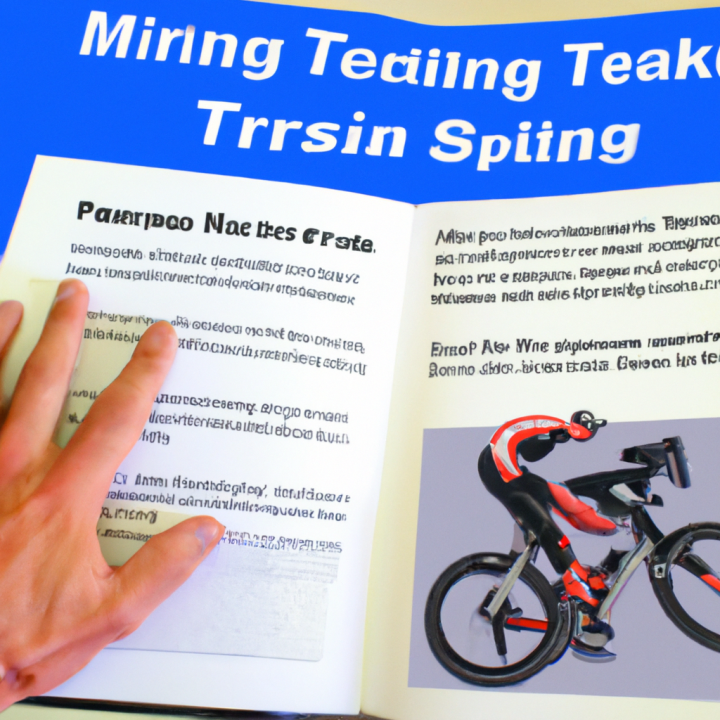Maximizing Your Cycling Performance: Essential Training Tips For Cyclists
Cycling is an excellent way to stay healthy and fit, while also enjoying the outdoors. However, when it comes to increasing your performance and pushing your limits, there are some essential training tips that cyclists should be aware of. Here are some cycling tips to maximize your performance:
1. Get Adequate Rest
You must make sure that you’re getting ample rest in order to optimize your performance. A good rule of thumb is to get at least 7-8 hours of sleep a night. This helps ensure that you’re getting your muscles and brain the rest that it needs to recharge and perform at its best on a daily basis.
2. Vary Your Workouts
It’s very important to mix up your workouts in order to make progress and improve your performance. Your body is a machine and it needs to be challenged in order to stay in shape and perform at its best. Try adding one day of strength training to your routine in addition to your regular cycling workouts. This will keep your muscles and body in shape and at their best.
3. Eat Healthy
Nutrition plays a huge role in cycling performance. A healthy, nutritious diet will help give you the energy and endurance you need to excel in your cycling endeavors. Here are some tips to ensure you’re eating right:
- Eat lean proteins like fish or chicken.
- Drink plenty of water.
- Eat fresh fruits and vegetables.
- Don’t forget carbs to fuel your rides.
4. Regularly Monitor Your Performance
It’s important to keep an eye on your progress and track your performance. Monitoring your progress will give you a good indication of how your training is going and what areas need improvement. Look at your speed, heart rate, duration, power output, and anything else you want to track.
5. Take Breaks
It’s important to take regular breaks from cycling whenever you feel the need. This will help keep you motivated and allow you to come back stronger than before. Take a day or two off every week and use that time to rest and recuperate. This will help with performance in the long run.
Conclusion
By following these training tips, you will be able to maximize your cycling performance and push your limits. Make sure to get enough rest, vary your workouts, eat healthy, track your performance, and take breaks whenever necessary. With these strategies in place, you will be well on your way to becoming a better cyclist.
How significant is nutrition and hydration when it comes to maximizing cycling performance?
Nutrition and hydration are essential for maximizing cycling performance, as a poor diet and/or lack of hydration can significantly impair physical performance. Adequate carbohydrate and protein intake are necessary for athletes to maintain a sufficient amount of energy throughout their ride. Additionally, hydration is key to preventing dehydration, which can lead to fatigue, dizziness, and cramping that can affect performance. Nutrition and hydration strategies should be tailored specifically to each athlete’s needs and should change depending on the type and intensity of the ride.
What are some of the best training practices to focus on when optimizing one’s cycling performance?
Some of the best training practices to focus on when optimizing one’s cycling performance include following a self-developed training plan, designing the program to align with one’s goals, using quality equipment, developing anaerobic and aerobic endurance, including interval training and hill workouts, and monitoring nutritional changes. Additionally, it is essential to focus on flexibility and core strength, strength exercises targeting specific muscle groups, performing regular recovery sessions and stretching to reduce the risk of injury, and gradually increasing the training load. Finally, it is important to establish clear goals and track progress to ensure that the training is on track.
What are some of the key components of a successful cycling training program?
1. A well-structured plan that accounts for how much time and effort you’re willing to dedicate to your training.
2. A realistic goal that is achievable and measurable.
3. A gradual progression of intensity and volume as your fitness level increases.
4. Regular assessment of your progress, including keeping detailed records of your activities.
5. Cross-training to build strength and aerobic capacity.
6. Proper nutrition and hydration to fuel your workouts.
7. Adequate rest and recovery to allow your body to recover and adapt to the rigors of training.
8. Quality equipment for safe and effective training.
9. A positive mental attitude to maintain motivation and reduce stress.
How important is rest and recovery when it comes to optimizing cycling performance?
Rest and recovery are essential for optimizing cycling performance. Recovery helps the body recover from fatigue and allows the body to build new pathways that can help increase connection, speed, and power. Rest and recovery also help increase the body’s capacity to store and use fuel during cycling, helping to increase endurance and avoiding burnout. Additionally, rest and recovery allow the body to repair muscle tissues and helps to reduce muscle strain, decreasing the risk of injury and allowing for more efficient cycling.
